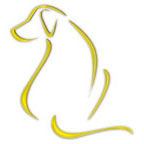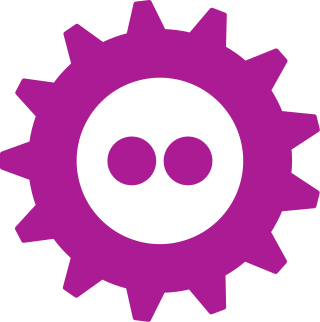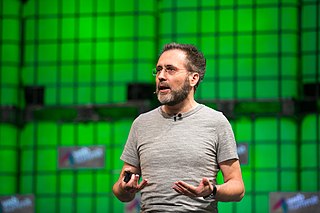
Oracle Corporation is an American multinational computer technology company headquartered in Austin, Texas, United States. In 2020, Oracle was the third-largest software company in the world by revenue and market capitalization. In 2023, the company’s seat in Forbes Global 2000 was 80. The company sells database software and cloud computing. Oracle's core application software is a suite of enterprise software products, such as enterprise resource planning (ERP) software, human capital management (HCM) software, customer relationship management (CRM) software, enterprise performance management (EPM) software, Customer Experience Commerce and supply chain management (SCM) software.

Red Hat, Inc. is an American software company that provides open source software products to enterprises and is a subsidiary of IBM. Founded in 1993, Red Hat has its corporate headquarters in Raleigh-Durham, North Carolina, with other offices worldwide.

Sun Microsystems, Inc. was an American technology company that sold computers, computer components, software, and information technology services and created the Java programming language, the Solaris operating system, ZFS, the Network File System (NFS), and SPARC microprocessors. Sun contributed significantly to the evolution of several key computing technologies, among them Unix, RISC processors, thin client computing, and virtualized computing. Notable Sun acquisitions include Cray Business Systems Division, Storagetek, and Innotek GmbH, creators of VirtualBox. Sun was founded on February 24, 1982. At its height, the Sun headquarters were in Santa Clara, California, on the former west campus of the Agnews Developmental Center.

Yellow Dog Linux (YDL) is a discontinued free and open-source operating system for high-performance computing on multi-core processor computer architectures, focusing on GPU systems and computers using the POWER7 processor. The original developer was Terra Soft Solutions, which was acquired by Fixstars in October 2008. Yellow Dog Linux was first released in the spring of 1999 for Apple Macintosh PowerPC-based computers. The most recent version, Yellow Dog Linux 7, was released on August 6, 2012. Yellow Dog Linux lent its name to the popular YUM Linux software updater, derived from YDL's YUP and thus called Yellowdog Updater, Modified.

Free and Open source Software Developers' European Meeting (FOSDEM) is a non-commercial, volunteer-organized European event centered on free and open-source software development. It is aimed at developers and anyone interested in the free and open-source software movement. It aims to enable developers to meet and to promote the awareness and use of free and open-source software.
Oracle Grid Engine, previously known as Sun Grid Engine (SGE), CODINE or GRD, was a grid computing computer cluster software system, acquired as part of a purchase of Gridware, then improved and supported by Sun Microsystems and later Oracle. There have been open source versions and multiple commercial versions of this technology, initially from Sun, later from Oracle and then from Univa Corporation.
Filesystem in Userspace (FUSE) is a software interface for Unix and Unix-like computer operating systems that lets non-privileged users create their own file systems without editing kernel code. This is achieved by running file system code in user space while the FUSE module provides only a bridge to the actual kernel interfaces.
In computing, a solution stack or software stack is a set of software subsystems or components needed to create a complete platform such that no additional software is needed to support applications. Applications are said to "run on" or "run on top of" the resulting platform.

Urs Hölzle is a Swiss software engineer and technology executive. As Google's eighth employee and its first VP of Engineering, he has shaped much of Google's development processes and infrastructure, as well as its engineering culture. His most notable contributions include leading the development of fundamental cloud infrastructure such as energy-efficient data centers, distributed compute and storage systems, and software-defined networking. Until July 2023, he was the Senior Vice President of Technical Infrastructure and Google Fellow at Google. In July 2023, he transitioned to being a Google Fellow only.
Apache Hadoop is a collection of open-source software utilities that facilitates using a network of many computers to solve problems involving massive amounts of data and computation. It provides a software framework for distributed storage and processing of big data using the MapReduce programming model. Hadoop was originally designed for computer clusters built from commodity hardware, which is still the common use. It has since also found use on clusters of higher-end hardware. All the modules in Hadoop are designed with a fundamental assumption that hardware failures are common occurrences and should be automatically handled by the framework.

Douglass Read Cutting is a software designer, advocate, and creator of open-source search technology. He founded two technology projects, Lucene, and Nutch, with Mike Cafarella. Both projects are now managed through the Apache Software Foundation. Cutting and Cafarella are also the co-founders of Apache Hadoop.
Google App Engine is a cloud computing platform as a service for developing and hosting web applications in Google-managed data centers. Applications are sandboxed and run across multiple servers. App Engine supports automatic scaling for web applications allocating more resources to the web application for handling additional demand as the amount of requests increases for an application.

A computer cluster is a set of computers that work together so that they can be viewed as a single system. Unlike grid computers, computer clusters have each node set to perform the same task, controlled and scheduled by software. The newest manifestation of cluster computing is cloud computing.
Eucalyptus is a paid and open-source computer software for building Amazon Web Services (AWS)-compatible private and hybrid cloud computing environments, originally developed by the company Eucalyptus Systems. Eucalyptus is an acronym for Elastic Utility Computing Architecture for Linking Your Programs To Useful Systems. Eucalyptus enables pooling compute, storage, and network resources that can be dynamically scaled up or down as application workloads change. Mårten Mickos was the CEO of Eucalyptus. In September 2014, Eucalyptus was acquired by Hewlett-Packard and then maintained by DXC Technology. After DXC stopped developing the product in late 2017, AppScale Systems forked the code and started supporting Eucalyptus customers.
Nimbus is a toolkit that, once installed on a cluster, provides an infrastructure as a service cloud to its client via WSRF-based or Amazon EC2 WSDL web service APIs. Nimbus is free and open-source software, subject to the requirements of the Apache License, version 2.
Sector/Sphere is an open source software suite for high-performance distributed data storage and processing. It can be broadly compared to Google's GFS and MapReduce technology. Sector is a distributed file system targeting data storage over a large number of commodity computers. Sphere is the programming architecture framework that supports in-storage parallel data processing for data stored in Sector. Sector/Sphere operates in a wide area network (WAN) setting.
Pentaho is business intelligence (BI) software that provides data integration, OLAP services, reporting, information dashboards, data mining and extract, transform, load (ETL) capabilities. Its headquarters are in Orlando, Florida. Pentaho was acquired by Hitachi Data Systems in 2015 and in 2017 became part of Hitachi Vantara.
Data-intensive computing is a class of parallel computing applications which use a data parallel approach to process large volumes of data typically terabytes or petabytes in size and typically referred to as big data. Computing applications that devote most of their execution time to computational requirements are deemed compute-intensive, whereas applications are deemed data-intensive require large volumes of data and devote most of their processing time to I/O and manipulation of data.
Sanjay Ghemawat is an Indian American computer scientist and software engineer. He is currently a Senior Fellow at Google in the Systems Infrastructure Group. Ghemawat's work at Google, much of it in close collaboration with Jeff Dean, has included big data processing model MapReduce, the Google File System, and databases Bigtable and Spanner. Wired have described him as one of the "most important software engineers of the internet age".
Microsoft, a technology company historically known for its opposition to the open source software paradigm, turned to embrace the approach in the 2010s. From the 1970s through 2000s under CEOs Bill Gates and Steve Ballmer, Microsoft viewed the community creation and sharing of communal code, later to be known as free and open source software, as a threat to its business, and both executives spoke negatively against it. In the 2010s, as the industry turned towards cloud, embedded, and mobile computing—technologies powered by open source advances—CEO Satya Nadella led Microsoft towards open source adoption although Microsoft's traditional Windows business continued to grow throughout this period generating revenues of 26.8 billion in the third quarter of 2018, while Microsoft's Azure cloud revenues nearly doubled.






